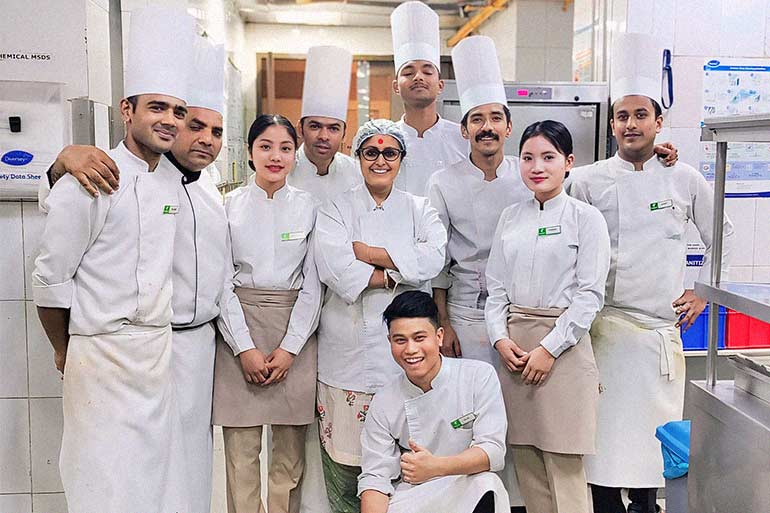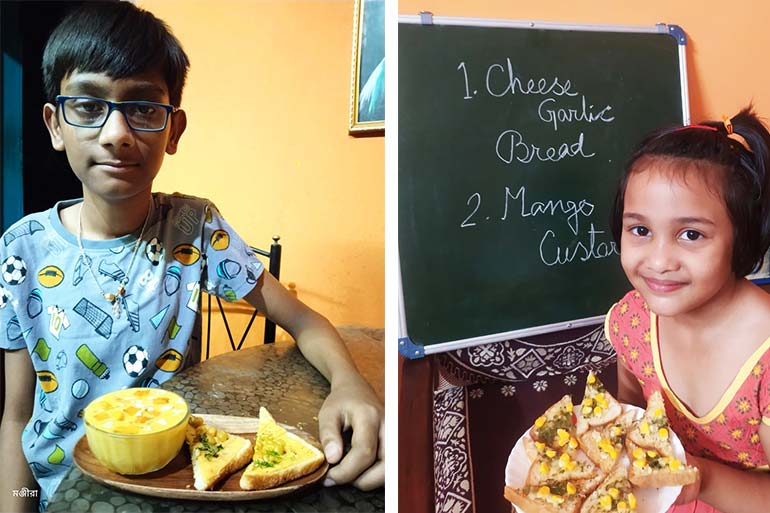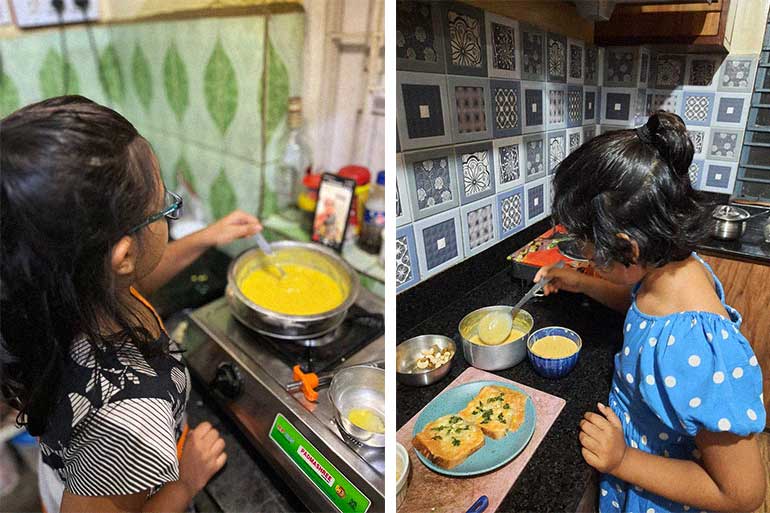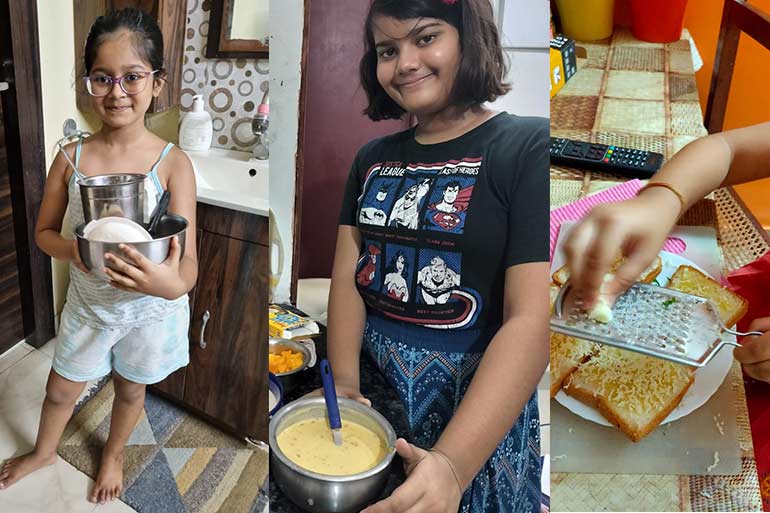Chef Shamita Haldar: Shaping a new generation of little chefs - GetBengal story

“In the pandemic, I started teaching cooking thinking it would help children pass time and keep their minds happy. I didn’t really think then about whether I would continue in the future. But once the pandemic ended, I noticed that many parents wanted their children to learn cooking. Apart from that, I regularly conduct cooking classes for adults. If I take three adult classes a month, I take only one children’s class. In the children’s class, I don’t cook and show them step by step—whatever I explain, they listen attentively and learn very quickly,” said noted chef Shamita Haldar to Bongodorshon.com.

Shamita began her journey in culinary arts at just ten years old. Because of her mother’s illness, she had to understand the essence of pots and ladles at a very tender age, almost out of necessity. Later, after completing an English Honours degree and a B.Ed, she embraced cooking wholeheartedly and became a professional chef—without any formal degree in culinary studies. Today, invitations come from across India and abroad to taste her food, she regularly does pop-ups at five-star hotels, and her special cooking columns are published in leading magazines and journals.
According to Shamita, her young students eagerly wait for her cooking classes—even when they have exams. Those who have been learning for the past few years are now skilled little chefs. They can complete the entire cooking process themselves without any help. Even children with special needs learn cooking from her. Apart from Kolkata’s organisation Pratham Padakshep, she has also taught autistic children in Gurgaon. She also conducts special cooking sessions for children during certain summer camps. Except for classes for specially-abled children, she conducts all children’s classes online.

Children aged 4+ to 14+ participate in Shamita’s classes. What kind of cooking does she usually teach the little ones? Shamita explained, “Naturally, I don’t include complicated dishes in children’s classes. That makes it easier for them to learn. Till date, there hasn’t been a single child who couldn’t keep up. I generally cook seasonal dishes, and I teach the same in my classes. Since summer is coming, I will try to focus on summer-based recipes. Watermelon, mango, pineapple—fruits available during the heat—I’ll teach them recipes using these. In winter, they learnt to bake cakes using strawberries and chocolate. For tiffin, they learnt pasta salad, smoothies and a few such recipes. Taste and health are both important to me, so I try teaching them seasonal cooking accordingly.”
Even four-year-olds—some of whom can barely walk properly—join her classes. Children from all over the world, including the Netherlands, the UK, and the USA, participate. Every class has around 40 to 60 children. Their enthusiasm and concentration are remarkable. Shamita said she believes that today’s generation no longer carries gender-based taboos regarding cooking. Parents too are more open-minded now. The old belief—boys don’t need to learn cooking, girls do—is no longer relevant. Along with performing arts like dance, music, painting and theatre, parents are now giving importance to teaching their children cooking. Cooking is an art that anyone can embrace and even choose as a profession. In today’s times, knowing how to cook has become a basic necessity.

“When I post something on social media, many people encourage me, saying they love how I teach cooking irrespective of gender. And the way parents are sending their children to cooking classes shows its positive impact. In fact, there is so much demand for children’s classes that sometimes I cannot manage,” said Shamita.
When she began during the Covid period, she didn’t take any fees from children. Now she charges a minimal amount. This money is used to help bring school-dropout children back into the mainstream and support their education. The young students in her classes know exactly why they are paying a fee. This creates a bridge of understanding. They also offer friendship by donating their used clothes, shoes, books and stationery.

Given the increasing popularity of cooking classes, she might organise them in a more structured way in the future. But for now, she wishes to continue nurturing young chefs under her guidance, just the way she has been doing.
Note:
Translated by Krishnendu Mitra
To read the original Bengali article, click here.
Image Courtesy - Shamita Haldar











